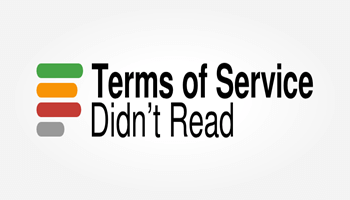Taming Terms Of Service Agreements
All of us have been asked to sign the extremely long and hard-to-read “Terms of Service” (TOS) forms that are so prevalent for online websites. Particularly Software and Social Media giants like Apple, Facebook, Instagram, Microsoft, and a host of others. These forms are designed this way to make readers sign off their rights to “sensitive information” without reading the document.
I did a quick check and found that Apple’s TOS is 7,888 words. Microsoft’s TOS does attempt to break down what you are signing in large highlighted “Sections”, but it still has an astounding 14,010 words.
Facebook, Google, and others have what initially looks like relatively smaller TOS but the documents contain several sub-links that may or may not pertain to you so their total count is difficult to determine.
Google even starts its TOS with this quote:
The TLDR Act
This is a new bill proposed by Rep. Trahan (D-Mass), Senators Lujan (D-N.M.), and Cassidy (R-La). You have to love their sense of humor using the internet’s love of abbreviations with TLDR standing for “Too Long, Didn’t Read” as the name of the bill. To congresswoman Lori Trahan, “I want to make complicated terms of service contracts that nobody reads a thing of the past. Companies should be required to make their terms of service contracts more accessible and transparent, giving control back to the consumer.”
The bill is designed to give users an honest chance of understanding the major rights a user is giving up by requiring online companies to have a “Short-Form TOS that sits on top of the much longer worded document.
The Short Form would include a breakdown of just what “sensitive information” a user is giving up. What data is collected and what data is shared with other institutions and instructions on how a user could request that their information be deleted, They would also have to provide a list of all data breaches they have experienced in the previous three years.
Summary
I applaud any effort to make these long “Terms of Service” contracts more transparent but to have any real teeth, the bill should include the right of an individual to not be denied access to the site when denying the use of their sensitive information to be used. Even so, I hope this bill passes. Any action that gives the end-user more control over how any of their information is used is a step in the right direction.
—

